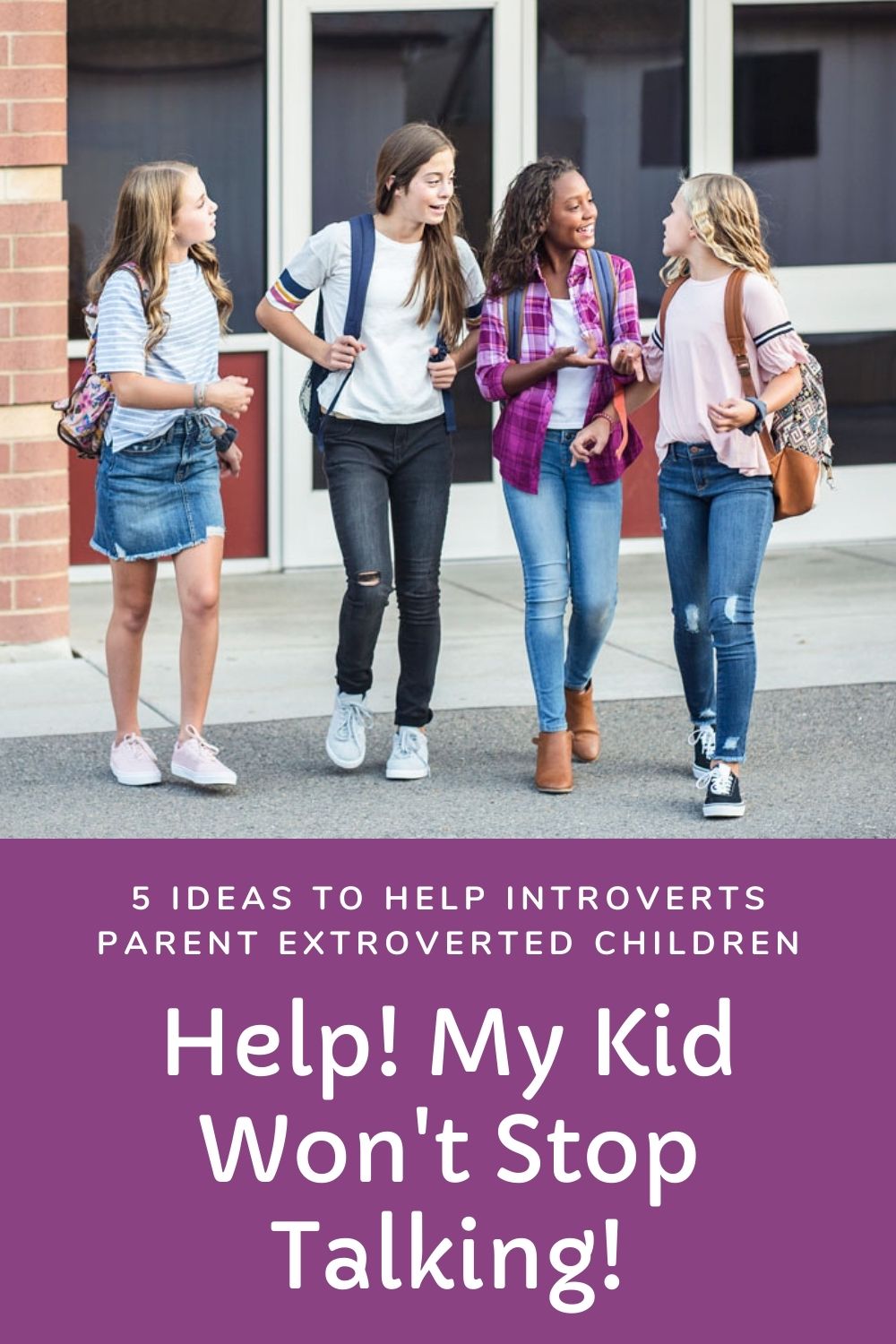An Introvert’s Guide to Parenting Kids with Big Ideas and Personalities
OMG- There’s so much moving and talking with my wonderful extroverted kid!
After a long day at work I just want to sit and listen to the sound of nothing, but my extroverted girl wants anything-but. How do I honor her needs while also seeing to my own?
Do you remember the Looney Tunes cartoon with the big bulldog and the yappy little dog jumping back and forth over his back?
The little dog was always talking super fast and had all of these crazy ideas about things they could go do together. The big dog always looked nonplussed and would occasionally come back with an, “Aw, shut up!” retort to the enthusiastic little yipper… or just smack him out of the way.
While I am certainly not suggesting that any of you should swat your kid out of the way or tell him or her to shut up, if you are an introvert parent with an extrovert child, I am guessing the thought has crossed your mind.
There are times when I wonder how on earth I have such a high energy super social kid. Don’t get me wrong- I enjoy being around people- but I also REALLY love having time to myself. And I am totally OK with quiet.
But for my daughter, if there is a quiet space, she will most certainly fill it.
5 Ideas to Help Introverted Parents Raise Extroverted Children
I remember when she was about 5 years old, she started crying at the dinner table. We were all clearing her plates and she was beside herself because she still hadn’t finished eating (too busy talking) and now there would be no one at the table to listen to her stories.
Insert Mom guilt.
How do we as parents preserve our own sanity while helping our kiddos to be their best version of themselves? Here are some suggestions:
1) Sign up Your Extrovert Child for Interactive Activities
Extroverts thrive on being busy. Find ways for them to be busy that don’t necessarily require the same of you!
Go to the playground, sign them up for community education classes, schedule play dates. Remember that you don’t have to be their go-to person all the time. Providing them with good social outlets benefits everyone involved!
Hate the thought of having to call up another parent to make arrangements? Sometimes texting can feel a lot less overwhelming.
This is also a good opportunity for your child to practice phone skills: there’s nothing wrong with them taking the lead on scheduling things (just make sure parents are involved at some point).
2) Set Regular, Dedicated Time for Your Extrovert to Talk to You
Several experts say that extroverted people don’t feel like they have fully experienced something unless they have had the opportunity to share it with others. Therefore, it is important for extroverted kids to have opportunities to “get it all out.”
Carve out 10-15 solid uninterrupted minutes each day for your busy one to talk things out with you.
Also, be prepared for that time to be around bed time. Many kids and adults in my life are not ready to talk about their day right after school or work, but when bedtime rolls around, the thoughts just start pouring out of them.
3) Go on Adventures With Your Extrovert Kid
As an introvert parent myself, I understand the desire to sit back and not try new things. But in my 16+ years of parenting, I have discovered some fun new activities that I enjoy with my kids because I was willing to give it a try.
Whether it’s going down a big slide at the park, doing a cannonball in the neighbors’ pool, riding a scooter, going sledding, or going on a roller coaster, put on your brave pants and try something new.
Regardless of whether you end up loving it or not, your kid will appreciate that you were willing to give it a try. And, if you have an introverted kiddo, you are setting a great example.

Parenting an Extrovert
4) Teach Your Child How to Enjoy Quiet/ Alone Time
Just like introverted people need to learn how to be around groups of people, extroverted people need to learn how to be alone. They don’t necessarily have to like it, but it is a life skill. And it’s also a valuable lesson in learning to respect others’ needs for alone time.
Start small – even just a 10 to 15-minute block of time- and schedule times where your child spends time alone in his or her room so you can do the same.
With kids, it’s often all in how you present it. Instead of making it feel like a punishment, present it as this really fun new thing you’re going to try. Have him or her create a little “quiet box” of activities (books to read, coloring books, dot to dots, puzzles, legos, or whatever they enjoy) so they have it ready to go at any time.
Gradually increase the amount of time (a good old fashioned sand timer or a visual timer can help with this- here is an example on amazon: Visual Timer) as they build their “alone time stamina.”
5) Schedule Time for Yourself
Whatever you do, don’t feel guilty about needing your alone time. Just as your little Energizer Bunny needs lots of input to feel happy and healthy, you need your alone time for the same reasons.
Know yourself and what you need. Call on friends or family members to help you make it happen.
More to Explore


